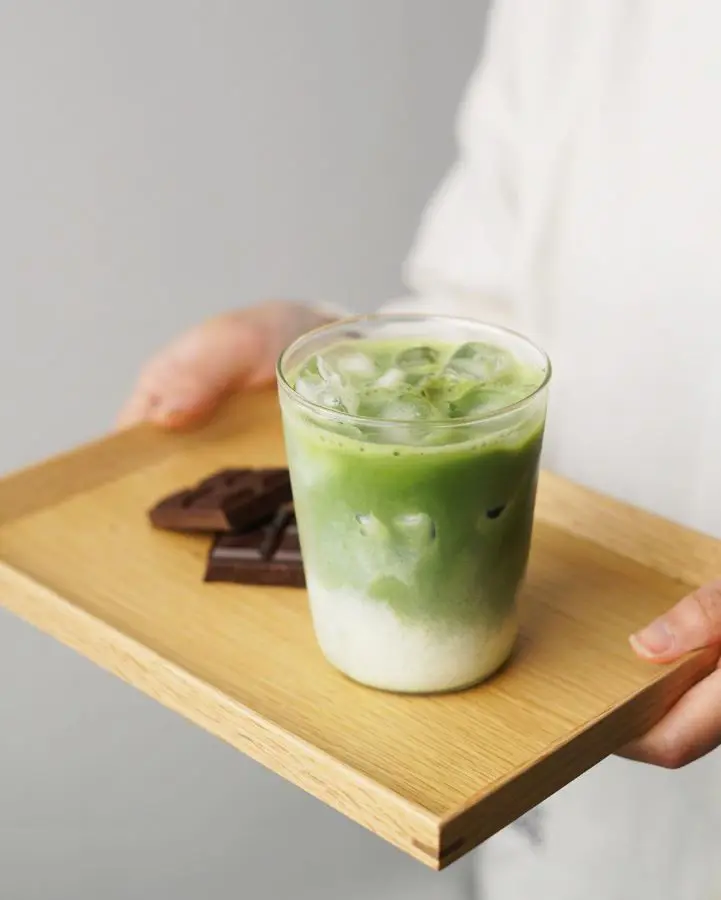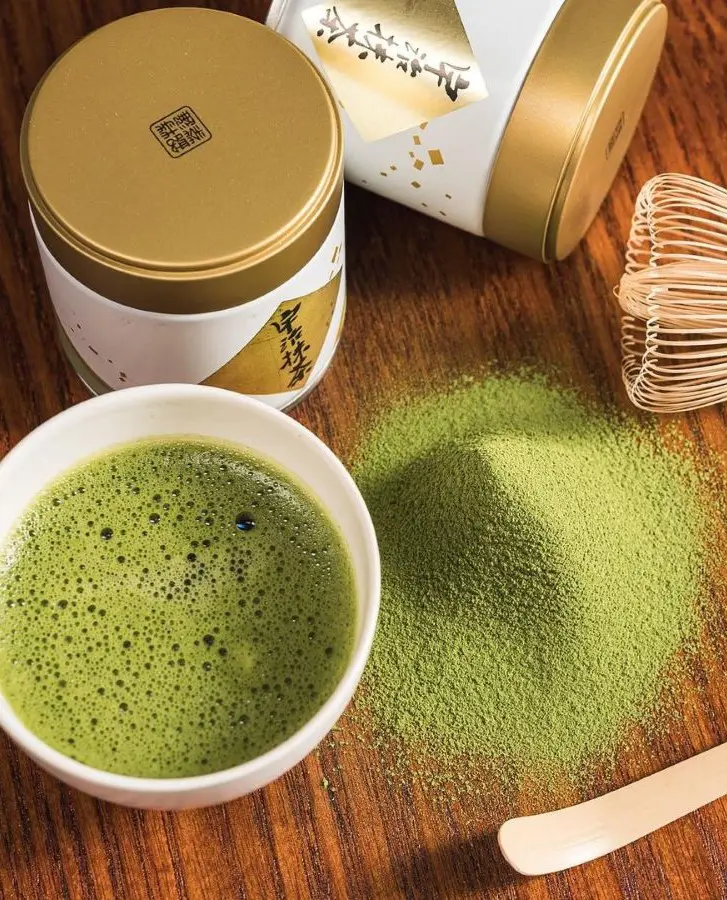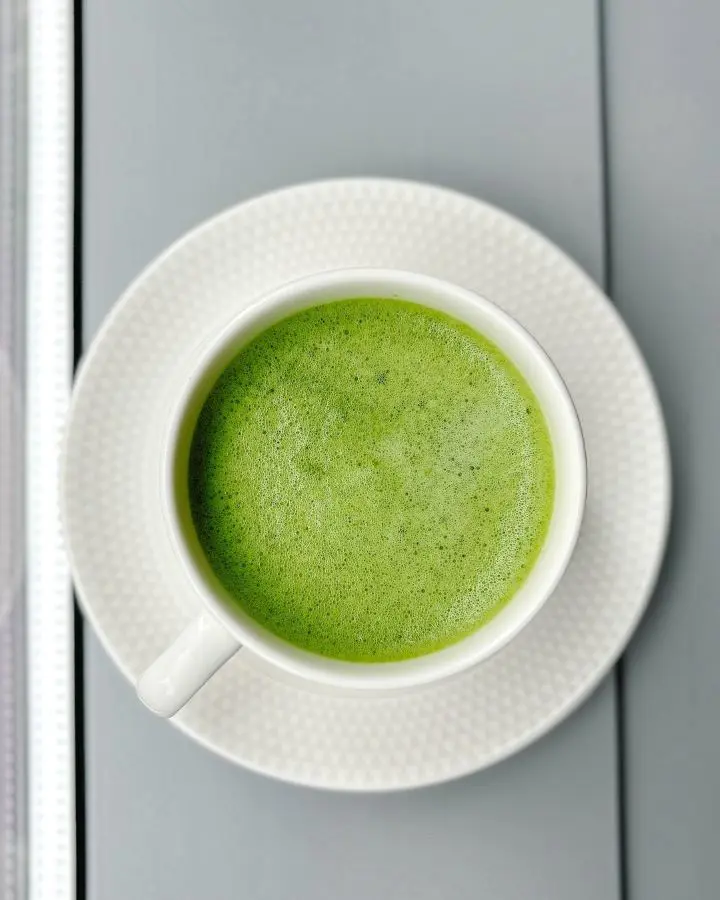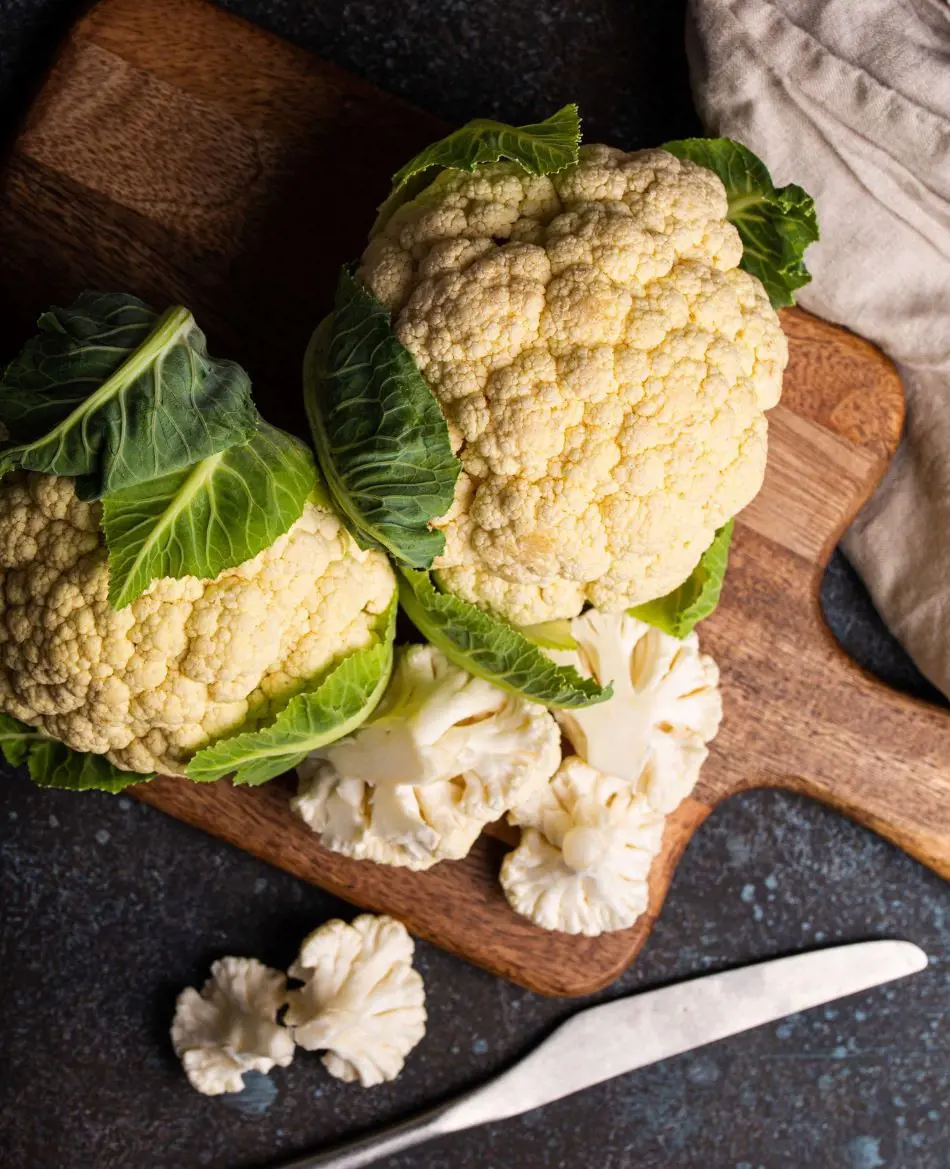16 Matcha Health Benefits And Nutrition Facts

You are probably familiar with the brightly green-colored matcha teas, lattes, and desserts. Matcha was once considered an exotic ingredient and was only drunk in Japanese tea ceremonies, but thanks to its numerous health benefits, they are now widely available.
Matcha tea is a type of green tea made from whole, powdered tea leaves of the Camellia sinensis plant. It is grown differently than green tea and contains more caffeine and antioxidants. Here are 16 matcha tea benefits.
1. Rich in Antioxidants
There are many benefits of drinking matcha tea, and all of these can be attributed to the catechins in the tea. It contains a specific catechin known as epigallocatechin gallate (EGCG), a natural antioxidant. EGCG inhibits oxidation, meaning it exerts antiinflammatory activity in immune cells.
This activity protects healthy cells from damage caused by free radicals, which can contribute to chronic diseases like cardiovascular disease and cancer.
Matcha is made by grinding the leaves into a powder. This powder is mixed with water or milk for the tea, which means you are ingesting all the good stuff, unlike regular green tea, where you steep the leaves and discard them. This allows us to reap the maximum benefits of the antioxidants in the tea.
2. Promote Heart Health
Matcha is also known to promote heart health. The EGCG in the tea may help lower LDL ("bad") cholesterol levels by inhibiting the formation and absorption of cholesterol from food in the intestines.
They also play a role in the production of bile, an acid produced by the liver, which helps our body eliminate excess cholesterol, thereby preventing the buildup of bad/LDL cholesterol. If there is too much LDL cholesterol in our body, it builds up in the walls of our arteries, narrowing them and increasing the risk of heart attack and stroke.
EGCG may also improve blood vessel function. Our blood vessels supply the organs and tissues with the oxygen and nutrients they need to work. This helps maintain healthy blood pressure and circulation.
3. Boost Cognitive Function
Apart from promoting heart health, catechins are also essential for our brain health, the organ that controls all cognitive functions. As mentioned before, the catechins in matcha improve blood vessel function. This ensures that our brain receives the oxygen and nutrients crucial for cognitive functions like learning, memory, problem-solving, etc.
The catechins can also enhance the function of neurotransmitters, a signaling molecule that coordinates our cognitive function. It prevents enzymes from attacking these neurotransmitters.
Apart from catechins, matcha contains L-theanine, an amino acid that promotes relaxation and reduces anxiety. This might enhance cognitive function and improve alertness.
4. Aid Weight Loss

While matcha is not the be-all and end-all for weight loss, it is famous for its ability to enhance weight loss. EGCG is known to naturally boost metabolism, allowing our body to burn more calories at rest, potentially aiding weight loss.
EGCG also furthers the effects of caffeine, an ingredient found in matcha. Caffeine increases adrenaline levels, the hormone that promotes the release of fatty acids from adipose cells into the bloodstream to be used for energy. This increases our metabolic output, so we burn more calories and lose weight.
EGCG and caffeine also help to promote weight loss by suppressing our appetite. These compounds promote feelings of fullness and satisfaction. This reduces our appetite and overall calorie intake.
5. Improve Dental Health
Drinking matcha tea also benefits our dental health. Apart from confidence and self-esteem, our dental health influences our digestive health and is linked to chronic health conditions like heart disease, stroke, diabetes, and even respiratory problems.
Dental problems often start with oral bacteria, which get between the gum and the tooth and cause dental diseases over time. Thankfully, EGCG helps fight oral bacteria that contribute to cavities, gum disease, and bad breath. This helps maintain a healthier oral environment.
EGCG also has potential anti-inflammatory properties. Chronic inflammation in the gums is the main cause of gingivitis and periodontitis, a serious infection of the gums that plays a role in the development of heart disease and stroke.
6. Improve Skin Health
Matcha powder can be used to improve skin health as well. It contains many essential vitamins that help with collagen production. Collagen is the main structural protein that keeps our skin from sagging, giving us that plump, youthful look. These vitamins also support skin cell regeneration and moisture retention crucial for healthy skin.
Additionally, the catechins in matcha have many anti-inflammatory properties that reduce the redness associated with chronic skin conditions such as rosacea and acne and lead to calmer, clearer skin. This is why many topical treatments contain matcha tea constituents.
Lastly, matcha improves skin health by improving blood circulation. This enhanced blood flow delivers oxygen and nutrients to skin cells, promoting a healthy glow.
7. Manage Blood Sugar Levels
Matcha tea helps regulate blood sugar levels in a few ways. Firstly, it slows sugar absorption. Matcha has a low glycemic index, meaning it causes a slower and smaller rise in blood sugar levels once consumed and digested. Therefore, it takes longer to digest, slowing down the absorption of glucose into the bloodstream.
The EGCG also improves insulin sensitivity. Insulin is a hormone that helps turn food into energy and manages your blood sugar level. It helps our cells absorb glucose (sugar) from the bloodstream.
By enhancing insulin sensitivity, matcha allows our body cells to use blood glucose more effectively, reducing blood sugar. This reduces the risk of many diseases, including diabetes and heart disease
8. Boost Immune Health

Our immune system keeps us healthy by protecting us from invaders, such as bacteria, viruses, and fungi that cause sickness and infection. People with weak immune systems experiences are prone to frequent and severe infections. Therefore, we need to boost our immune system by consuming food like matcha.
The EGCG in matcha has immune-boosting properties. It may help stimulate the production of lymphocytes, a type of white blood cells that play a critical role in fighting germs and protecting us from disease.
These white blood cells detect an intruder, locate it, and make more white blood cells to defeat the intruder. After destroying the intruder, these cells become memory cells. Memory cells cannot fight pathogens but recognize them quickly and mount a defense.
9. Increase Energy Levels
Matcha is a good energy source thanks to the caffeine and high amounts of L-Theanine. L-Theanine is a type of amino acid found in green tea that creates synergistic effects with caffeine for energy boost. It binds to the caffeine and slows its absorption into the bloodstream, resulting in a sustained energy boost.
This energy boost varies from the one you get from caffeinated products like coffee. The caffeine in a cup of coffee is absorbed quickly and leads to increased energy instantly, but this does not last long.
This energy surge leads to a crash, which leaves you drained and jittery, unlike matcha, which gives you energy for 3 to 6 hours.
10. Has Detoxifying Effects
Our body has its in-built detox system. Our liver breaks down toxins inside and outside our body into a much less toxic substance called urea, which is released into the blood. Urea is then transported to the kidneys and passed out of the body as pee.
But we are all exposed to more toxins than our detox systems can handle, and the rate of toxins leaving the body is much slower than toxins coming in. Therefore, we need to support our body’s natural detox system by drinking matcha tea. Matcha green tea is rich in chlorophyll, which helps improve liver function.
11. Improve Exercise Performance
Matcha can potentially improve exercise performance. Firstly, it does so by boosting our energy. The caffeine and L-theanine provide a sustained energy boost and improve focus and attention without the jitters. This enhances our overall exercise performance.
Secondly, during exercise, matcha helps our body use fat for energy. This means that the body will not use blood sugar for energy, which prevents a dip in our blood sugar level. This dip can cause fatigue and affect our performance.
Lastly, matcha improves our performance by enhancing our muscle function. Green tea increases blood flow, ensuring that the muscles receive oxygen and nutrients for optimum function.
12. Protect Liver

The liver is quite impressive in terms of its functions. It assists digestion and absorption of nutrients, removes toxic poisons, and regulates cholesterol levels. Therefore, taking care of your liver is very important to prevent the onset of liver diseases like non-alcoholic fatty liver disease.
Non-alcoholic fatty liver disease is a range of conditions caused by a build-up of fat in the liver, often seen in overweight and obese people. The extra fat in the liver causes liver inflammation, which may also lead to chronic liver disease, such as cirrhosis or liver cancer.
Therefore, we need to incorporate superfoods like green tea into our diet. The catechins in the teas reduce inflammation, which improves our liver function.
13. Reduce Risk of Cancer
Cancer is one of the leading causes of death worldwide after heart disease. It is caused by prolonged inflammation in the body. Inflammation is our body’s way of protecting us from injury and infection. However, problems arise when inflammation becomes chronic, where immune cells attack healthy cells instead of pathogens.
We can reduce cancer risk by reducing inflammation by incorporating food like matcha tea. It is rich in catechins, which can reduce inflammation and fight free radicals. Free radicals are unstable molecules that damage cells and are linked to various cancers.
Additionally, some studies suggest that EGCG in matcha tea may suppress the formation of new blood vessels that supply tumors with nutrients. This could hinder tumor growth and spread.
14. Relieves Stress
As mentioned above, matcha tea contains L-theanine, a compound known for significantly reducing stress levels and having a calming effect on the mind. One of the ways L-theanine reduces anxiety is by increasing serotonin and dopamine levels.
Serotonin acts as a hormone and regulates our mood. It is often called the body’s natural “feel good” chemical. Normal serotonin levels improve focus, regulate stress, and make one happier and calmer. Low levels of serotonin are associated with depression and anxiety.
Meanwhile, dopamine gives you pleasure, satisfaction, and motivation and controls memory, mood, sleep, learning, concentration, movement, and other body functions. Both serotonin and dopamine provide a chemical balance in the brain, which relieves stress.
15. Improve Gut Health
Matcha contains catechins and fiber, which act as prebiotics. Prebiotics improve the growth of beneficial gut bacteria, which leads to a healthier gut microbiome and gut.
Our gut microbiome is trillions of microbes living in the gut. They are crucial for gut health, digestion, metabolism, and immune function. Lower diversity of microbes in the gut can increase the risk of inflammatory bowel disease, celiac disease, type 2 diabetes, eczema, and psoriatic arthritis.
These microbes also help combat and inhibit the growth of harmful bacteria in the gut, such as H. pylori, linked to stomach ulcers. This promotes a healthier balance of gut microbes and improves gut health.
16. Strengthen Bones
Apart from catechins, matcha is rich in vitamin K, an essential vitamin for bone health. Vitamin K activates a protein called osteocalcin that deposits calcium into the bone matrix, strengthening bones and increasing bone mineral density (BMD). BMD is a measure of the minerals in the bones, and the higher the BMD, the stronger the bones and the lower the risk of fractures.
Vitamin K also reduces bone loss, particularly in older adults and people. It slows down the rate of bone loss and reduces the risk of osteoporosis. Vitamin K also works synergistically with vitamin D to promote calcium absorption from the gut.
Matcha Nutrition Facts
The nutrition facts of matcha powder (1 teaspoon) per serving include:
- Calories: 10
- Fat: 0g
- Sodium: 0g
- Carbohydrates: 1g
- Fiber: 1g
- Sugar: 0g
- Protein: 0g
However, one serving of matcha green tea (½ tsp or 1 gram) has a different nutritional profile. It contains:
- Protein: 306mg (272mg of amino acids and 50mg of lipids)
- Potassium: 27mg
- Magnesium: 2.3 mg
- Calcium: 4.2mg
- Zinc: 0.62mg
- Phosphorus: 3.5mg
- Iron: 0.17mg
Recent posts
Nutrition
Nutrition
Licorice Root: Benefits And Uses
You can spell it liquorice or licorice; this herb or root has been in use for centuries in most medicinal applications, as a natural sweetener and to enhance flavors. Regarding its origins, it comes from the root of the "Glycyrrhiza galbre" plant and...
Nutrition
Is Salmon Good For You? Nutritional Facts and Benefits
Salmon fish is a staple diet throughout the world, popular as a super food for its nutrients. Whether savored in sushi, poached, grilled, roasted, or pan-fried, salmon offers minerals and vitamins that contribute to healthy bodily functions. In addit...
Nutrition
25 Smoked Salmon Recipes That You Will Enjoy
Salmon is a silver-colored fish that is loaded with many nutrients, vitamins, and omega-3 fatty acids. Smoked Salmon is better for improving your health and reducing the risk of cancer, heart-related diseases, fights inflammation, reduces anxiety and...
Nutrition
Are Sausages Healthy? Nutrition And Health Benefits
Sausages are tasty in an addictive way, making them one of the most popular foods worldwide. You may have enjoyed this convenient food often, whether on a bun with mustard or grilled on a barbecue, the simple preparation methods are what makes its co...
Nutrition
20 Vegetables That Are Rich In Iron
Iron is essential for our bodies to function well. When we don't get enough iron, we often feel weak and tired. It's important to address iron deficiency early by eating the right foods. Fortunately, many vegetables are rich in iron and can help prev...
Nutrition
15 Cauliflower Nutrition Facts And Health Benefits
Cauliflower, a cruciferous vegetable, resembles a white variation of its relative, broccoli. Like broccoli, it has closely bunched florets attached to a thick core, often surrounded by a few leaves. While white is the most common color, cauliflower i...








